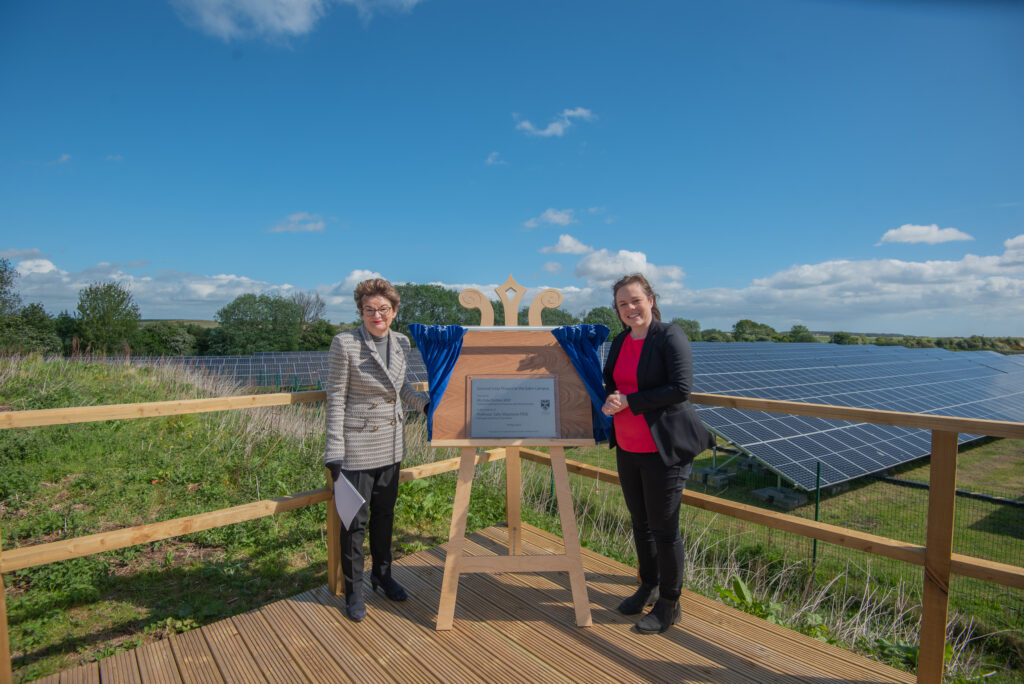PLANS by the University of St Andrews for net-zero targets were given the seal of approval this week.
The University plans to meet net zero targets, contribute to a just transition from fossil fuels, and take a leading role in driving a local and national economy.
The new solar farm was unveiled by Cabinet Secretary for Finance and the Economy, Kate Forbes MSP, on a visit to Eden Campus.

Economy Secretary, Kate Forbes said: “Scotland’s colleges and universities have a key role to play in rebuilding our economy and in helping Scotland meet its economic and climate goals in a way that is inclusive, as well as being beneficial on a local, national, and international scale.
“The leadership shown by the University of St Andrews in transforming the Eden Campus into a vibrant centre of green innovation and job creation will ensure further opportunities for the University to harness green energy and drive inclusive growth in the local economy.”
With a planned extension of its district heating network, the expectation is that the Eden Campus will be a carbon-neutral environment within the next five years.
The one-megawatt ground solar photovoltaic (PV) development will provide electricity to the campus.
The development was backed by a Scottish Funding Council loan and supported by the Vacant and Derelict Land Fund from the Scottish Government and Fife Council.
In addition to providing power to Walter Bower House and other buildings on the campus, the electrical supply will be utilised by electric charging points and the installation of battery storage.
The move reduces the University’s overall carbon footprint by approximately 5%.
University Principal and Vice-Chancellor, Professor Sally Mapstone said: “We are one of the world’s most ancient universities, but we strive to be one of the most modern and innovative.
“Social responsibility and sustainability are at the heart of our strategic plan.
“We are committed to a programme of decarbonisation, the efficient use of heat and water resources across our estate, as well as a deep-seated institutional commitment to all forms of environmental degradation by 2035, including through sustainable practice and policy. “
